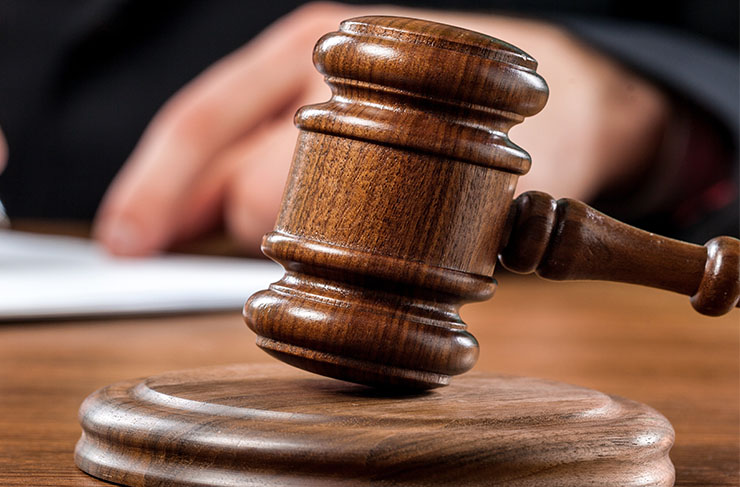You’ve delivered the promised goods or services, sent the customer an invoice, patiently waited for payment, and then sent two reminder emails. Still, there has been no progress thus far. Or maybe you’ve been refused payment for reasons you don’t think are legitimate. In what ways can you get your money back?
If you’ve decided you need legal help, a Debt Recovery Team can give you expert recommendations on getting the most suitable possible outcome for your company. The process of recovering debt involves several steps, so it’s crucial to understand what to expect when a debt collection agent contacts you.
Contents
In-depth Understanding About Debt Recovery
This is when a loan, such as a credit card balance, remains unpaid; the creditor may hire a third party, such as a collection agency, to retrieve the money.
Having a debt recovery is vital because it affects your credit score directly. A debt recovery service from a reliable firm, like Arma Group, contacting you indicates that there is documentation of your loan default and ongoing delinquencies. Your credit score is harmed due to these defaults, which may make it more challenging for you to acquire a loan in the future.

Source: letsbegamechangers.com
Legal Process of Debt Recovery
Processing Of Initial Consideration Of The Claim
So to begin, the merits of your claim will be investigated. Then review the paperwork to determine the exact amount owed and the original due date. Whether or not English law applies to the agreement, and whether or not there are any mediation or arbitration clauses. If the debtor is disputing the amount owed, the situation will be investigated thoroughly, and let you know if your claim is valid.
Send A Letter of Claim
The next step in debt recovery is to mail a letter of claim to the debtor. This will inform them that legal action may be taken against them and give them a deadline to respond. The judicial system’s policy is that parties should try to fix their differences out of court before resorting to litigation.
A debtor response could signal a willingness to negotiate, leading to a potential settlement offer for less than the amount owed. If they don’t respond or dispute the debt in their response, this can help you assess the weight of your case and determine whether to pursue it further.

Source: avadxb.com
Issuance of Proceedings
Sending a claim form and particulars of the claim to the court constitutes issuing proceedings if you intend to pursue the claim further. The debtor would have 14 days to respond to the documents after they were served, after which the court would assign a claim number.
Go To CCJs
A County Court Judgment (CCJ) may be entered against the debtor if they have not responded. This may include not just the debt itself but any applicable court fees and interest. If the debt is settled within a month, the CCJ will be erased from the debtor’s credit report.
A CCJ can be declared satisfied if the debt is paid later, but it will still appear on the debtor’s credit report. This could have a negative impact if the debtor borrows money.

Source: hiltonbairdcollections.co.uk
File For Defence and Directions Questionnaires
If the debtor replies that they intend to contest the claim, they will have an extra 14 days. Each side submits a directions questionnaire to the court detailing various aspects of the case’s execution. These aspects include the number of witnesses they plan to call and the time they anticipate the hearing will take.
The court will establish a schedule for subsequent actions, such as producing relevant documents and presenting witness and expert testimony. A request to stop the proceedings for one month to seek a solution might be filed if both parties agree.
End With Final Hearing
A final hearing will be held if an agreement has not been reached by this time. The judge will hear both sides’ arguments before deciding and issuing necessary orders, such as costs and interest.

Source: scoremaster.com
Factors To Consider In Making A Debt Collection Strategy
Build A Centralized Debt Collection System
Developing a centralized system for debt collection can be an efficient method to save money. Each member of the collections team can see the same accounts in the same database using a centralized system. It activates dialers, motivates collectors to work or examine accounts, and notifies them of issues as they occur.
When everything is in order, the account manager may easily access and sort through all receivable-related data. Companies can reduce expenses and spend less time on accounts by using a centralized system that is accessible and has all the relevant information.
Utilize The Latest Communication Channels
Staying up with the most recent innovations in communication technology is essential because these channels are always changing and developing. The first step in lowering collection costs and improving collection consistency is automating your debt collection process.
In addition to enhancing the client experience, automating your communication channels will allow for speedy payments, settlements, or reminders (by text or email). Calls from unknown numbers are often ignored, and fax machines are rarely used. Consequently, ineffective forms of communication should be rethought or updated.

Source: bfwggrants.com
Employ Analytics
Bad debts and challenging collections can be avoided using analytics in the debt collection process. Quickly determine whether a customer pays monthly, quarterly, or upon receipt of an invoice with the help of analytics. Your ability to mitigate your clients’ exposure to unnecessary risk depends on your ability to gain a comprehensive understanding of their accounts receivables.
For instance, you can “get ahead” of potential issue accounts by using analytics to monitor client payments and receive alerts in the event of chronic or gradual lateness. Overall, analytics can assist in preventing bad debt for your business. This will ensure that your cash flow remains steady and your collection technique is effective.
Conduct Client-Focused Operations
Operations that put the client first prioritize the convenience, swiftness, and safety of debtor payments. With the proliferation of smartphones and app-based payment systems, collection agencies may want to investigate integrating them into their operations.
Payment applications, online bill pay, and voice-activated phone systems are all examples of self-service portals that may make collections simple and safe. Generally, debtors are more amenable to working out a payment plan when provided with more convenient payment options.

Source: mietrechtsiegen.com
Be Informed About Debt Recovery With This Guide!
Pursuing a disputed debt claim could seriously affect you and your company. Providing precise instructions at each stage and appearing in court will require you to take time away from running your business. Fortunately, various debt recovery firms can help you with that issue.
